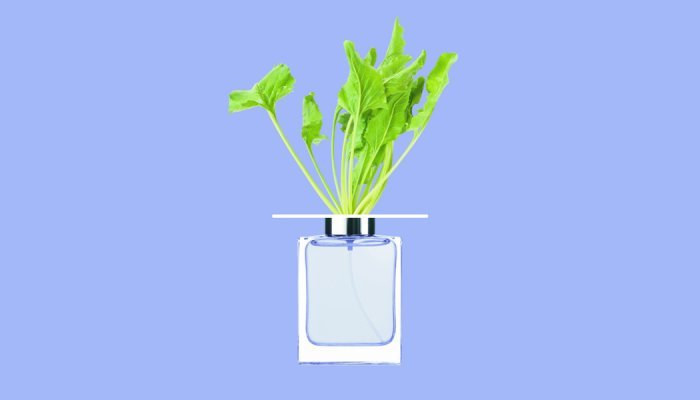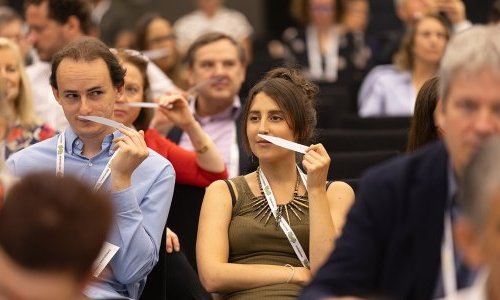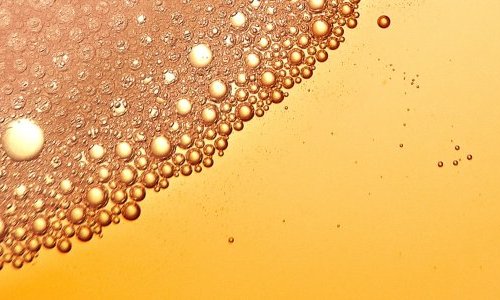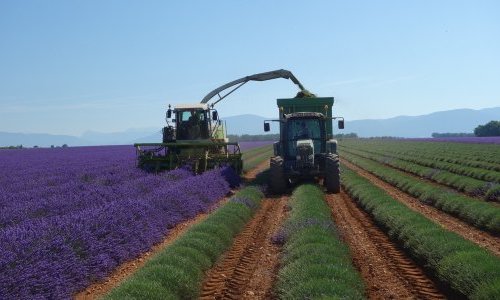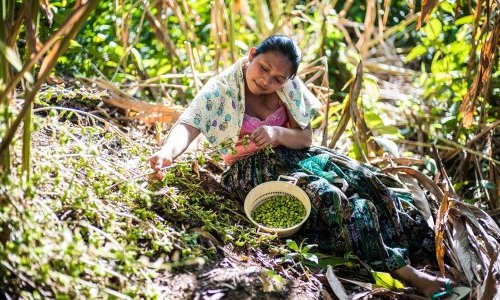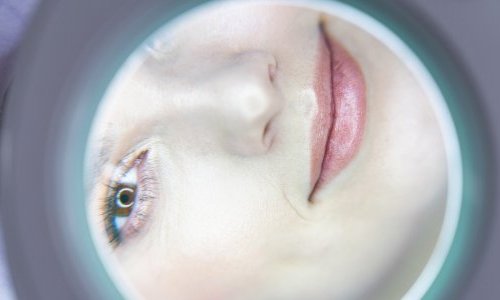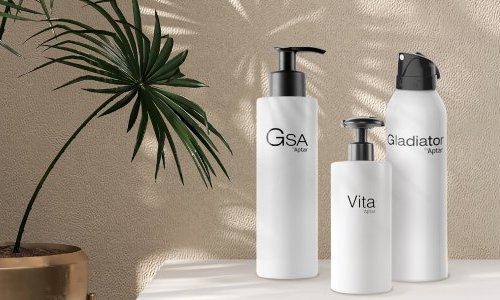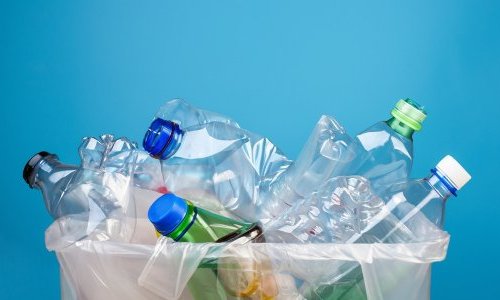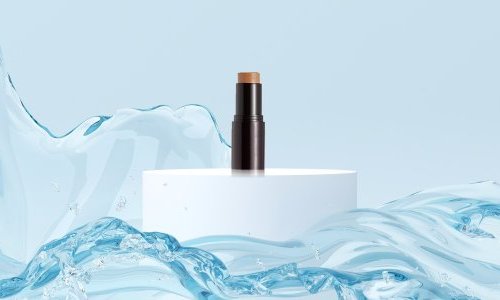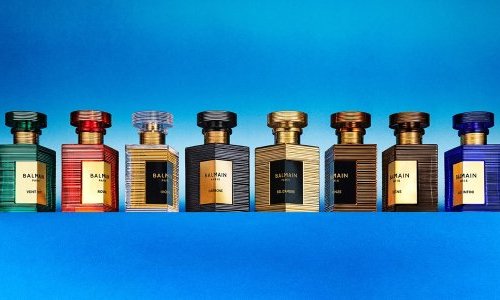Manufacturers wishing to achieve a high ecodesign index have been paying particular attention to ethyl alcohol, or ethanol, which can account for up to 95% of a fragrance composition. ‘Green’ alcohol can help reduce their products’ carbon footprint and demonstrate a strong commitment. Various solutions and technologies are emerging to meet these expectations.
With recycled carbon
Developed by LanzaTech, the technology for recycling the carbon emitted by factories to make ethanol caused a stir when, in 2021, Coty announced they had chosen this alcohol for their fragrances. In spring 2023, this decision led to the launch of the first Gucci fragrance to contain 100% of ethanol derived from recycled carbon.
This technology offers two advantages. It captures the carbon emitted by industrial steel mills, thereby reducing greenhouse gas emissions into the atmosphere, and then converts it into sustainable raw materials or fuels using biotechnology. A natural bacterium ferments the carbon contained in the gas released by the factories to produce a predetermined raw material. “We have a whole portfolio of biocatalysts selected for their potential to ferment the carbon contained in the emissions into about a hundred different raw materials”, explains Babette Pettersen, Vice President Europe at LanzaTech. These include ethanol, which, once purified, is used for perfumes.
The production is based on the CO2 emitted by four plants located in China: to date, it represents 200,000 tonnes of ethanol, most of which goes to the sustainable fuel market. “For each plant, we manage to reduce CO2 emissions into the atmosphere by 150,000 tonnes a year”, notes the vice-president.
The ethanol purification phase for the perfume industry takes place in Europe. It involves demanding requirements specific to each brand.
And in response to growing customer demand for 100% European sourcing, LanzaTech has just inaugurated its first biocatalysis unit in Belgium.
“This European project launched in 2015 is now up and running. We are going to capture the carbon emitted by the ArcelorMittal plant in Ghent and ferment it to produce ethanol for various European everyday product markets, including perfumes and cleaning products”, explains Babette Pettersen. The ethanol production capacity of 64,000 tonnes opens up new supply possibilities for the perfume industry. “We expect to have access to around 600,000 tonnes of ’Carbon Smart’ ethanol over the next 5 years,” she adds.
With regenerative agriculture
CristalCo, a subsidiary of the Cristal Union group and one of France’s leading sugar beet cooperatives, now offers the first range of agro-ecological, low-carbon sugars and alcohols, thanks to the Amplify™ programme. The project is based on regenerative agriculture practices applied by some of the cooperative’s farmer members. Regenerative agriculture involves preserving soils from erosion in the long term by various means, including covering them with plant varieties that have not been collected, so they are protected from climatic hazards, or limiting their work in order to protect biodiversity.
Out of the cooperative’s 4,630 growers assessed to date, 1,116 meet the criteria for regenerative agriculture quantified by the RI regeneration index.
“The beetroot produced with regenerative agriculture are pooled with the others, and we then establish a mass balance. This principle is fully accepted by our customers and by the brands”, explains Audrey Taffin, CristalCo’s Marketing Manager BtoB. Three major brands of the LVMH group – Parfums Christian Dior, Givenchy Parfums and Kenzo – are also interested in this approach. These three companies have financed a project to support the agro-ecological transition of 380 hectares of beetroot in north-eastern France, in order to produce the equivalent of 45% of their alcohol needs using the mass balance approach.
“Brands usually do not claim they adopted this approach specifically for their fragrances, but rather for their overall commitments,” notes Audrey Taffin.
The second part of Amplify™ is focused on carbon emission reduction. Cristal Union committed to a large energy transition towards renewable resources, which helped reduce its CO₂ emissions by 18% between 2019 and 2022. With this plan, the group now offers decarbonated sugars and alcohols. “We can make products derived from regenerative, low-carbon agriculture,” she concludes.
With legumes
Currently in the production phase, Intact Regenerative has been working on a different strategy based on the regenerative cultivation and processing of leguminous plants. This approach promotes sustainable perfume alcohol by reducing its impact on the carbon footprint, water footprint, and preservation of biodiversity. “Through our technologies, we will reduce production-related emissions by more than 80%, consume 75% less water, and act on biodiversity through plants”, says Alexis Duval, co-founder and Managing Director of Intact Regenerative.
The patented technology is based on the choice of leguminous plants, peas, or horse beans. “Legumes have a positive impact on soil life, unlike conventional crops. They are regenerative. Also, their pollen is gathered by bees, and they help reduce the use of pesticides, because they have a preventive effect on parasitism”, he explains. The main advantage of these plants is that they fix nitrogen in the soil, reducing the need for fertilisers, and therefore reducing the emissions associated with their production.
Finally, unlike the crops usually used to produce perfume alcohol (beetroot, maize, sugar cane), legumes make it possible to carry out dry extraction with less water, as well as low-energy fermentation and distillation. “Taking into account all phases, the sum of several innovations helps us achieve significant results in terms of sustainability. We can also reuse the pea shells in biomass boilers to provide almost all the energy we need”, adds Alexis Duval.
The alcohol offered by Intact Regenerative won this year’s Special Cleantech Prize at the Cosmetic 360 show. The company made its first investments in a production line based near Orléans, south of Paris. It should be operational in early 2025. A pre-booking system will make it possible for interested brands to position themselves and identify needs.
With plant co-products
Specialized in helping cosmetic and perfume ingredient suppliers recycle agricultural waste, La Fabrique Végétale has developed sustainable plant-derived alcohol which is 100% upcycled from a French agricultural source. “We cannot reveal the nature of the co-product now, as it will shortly be launched in collaboration with a major French perfumer, but its performance is much similar to that of beet and maize alcohol, with fruity notes,” explains Antoine Piccirilli, Technical and Scientific Director.
Just like for all upcycled products, this solution avoids competing with agricultural food production and is part of a circular approach. The current supply capacity approaches 400,000 litres, with a large organic volume and a potential of at least 5 million litres in the long term.
|
This article was published in our special issue Fragrance Innovation, to read here. |

